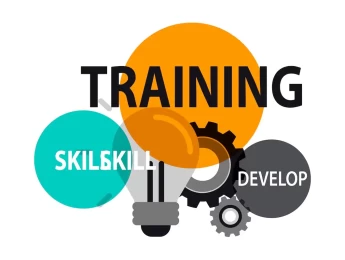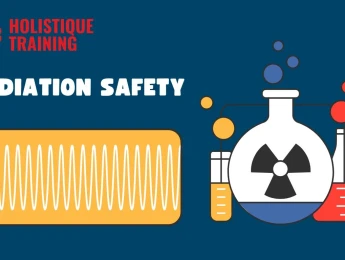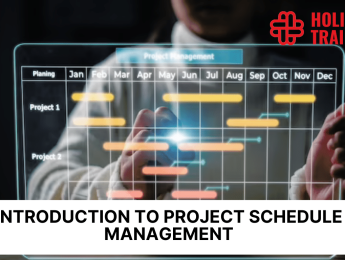- Table of Contents
- Introduction
- What Is a Professional Tour Guide?
- Top 10 Characteristics of a Great Tour Guide
- 1. Passionate and Enthusiastic
- 2. Profound Knowledge
- 3. Excellent Communication Skills
- 4. Organisational and Time Management Skills
- 5. Storytelling Abilities
- 6. Flexibility and Adaptability
- 7. Multilingual Skills
- 8. Empathy and Interpersonal Skills
- 9. Problem-Solving Abilities
- 10. Sense of Humor
- Tourism Best Practices
- 1. Conduct Thorough Research
- 2. Tailor Tours to the Audience
- 3. Master the Art of Storytelling
- 4. Provide Accurate Information
- 5. Foster Interactive Experiences
- 6. Prioritise Safety and Well-being
- 7. Respect Local Customs and Environment
- 8. Stay Up-to-Date with Technology
- 9. Seek Feedback and Continuously Improve
- 10. Network and Collaborate
- 6 Tips to Become a Professional Tour Guide
- 1. Acquire Relevant Education and Training
- 2. Immerse Yourself in Local Culture and History
- 3. Develop Exceptional Communication Skills
- 4. Volunteer or Intern as a Tour Guide
- 5. Build a Diverse Knowledge Base
- 6. Cultivate Professionalism and Customer Service Skills
- 7. Embrace Technological Tools
- 8. Cultivate Cultural Sensitivity and Respect
- Sustainable Tourism and Eco-Friendly Guiding Practices
- Embracing Responsible Travel
- Promoting Wildlife Conservation
- Supporting Local Communities
- Educating and Raising Awareness
- Encouraging Responsible Adventure Activities
- Reducing Carbon Footprint
- Implementing Leave-No-Trace Principles
- Collaborating with Conservation Organisations
- Conclusion
Introduction
Imagine exploring a new city or a famous historical site, and having an expert by your side, unravelling fascinating stories, providing insider information, and making your journey truly memorable. This is the role of a professional tour guide – a skilled individual who combines knowledge, enthusiasm, and excellent communication skills to bring destinations to life for travellers.
In this blog post, we will delve into the world of professional tour guides, shedding light on the key characteristics of a great guide and exploring the best practices that ensure a remarkable tour experience. Furthermore, we will provide six invaluable tips that can help you embark on the path to becoming a professional tour guide yourself.
What Is a Professional Tour Guide?
A professional tour guide is an ambassador of a destination, entrusted with the responsibility of guiding and enlightening travellers. Beyond simply providing information, a tour guide strives to create an engaging, interactive, and unforgettable experience for visitors. They possess in-depth knowledge of a location's history, culture, landmarks, and hidden gems, transforming a tour into a journey of discovery.
Top 10 Characteristics of a Great Tour Guide
A great tour guide possesses unique characteristics that elevate their role from an information provider to an engaging storyteller and curator of unforgettable experiences. Let's delve into the top 10 characteristics that define an exceptional tour guide and discover how they contribute to creating remarkable journeys for travellers.
1. Passionate and Enthusiastic
Passion is the driving force behind every exceptional tour guide. Their genuine love for the destination and its stories is contagious, igniting the curiosity of their audience. Enthusiasm keeps the guide engaged and makes the entire tour group eager to learn and explore. This passion turns a routine tour into a thrilling adventure, leaving a lasting impression on every traveller.
2. Profound Knowledge
A great tour guide possesses a wealth of knowledge about the destination. They don't just memorise historical dates; they understand the context, the nuances of culture, and the significance of landmarks. This profound knowledge allows them to provide detailed, accurate, and insightful information, enriching the travellers' experience and answering their questions with depth and clarity.
3. Excellent Communication Skills
Tour guiding is more than just speaking; it's about effective communication. Great guides articulate information clearly, ensuring everyone can understand and engage with the content. They can read their audience, adjusting their language and tone to suit different personalities and learning styles. Through active listening and empathetic communication, they connect with the travellers, making the tour interactive and engaging.
4. Organisational and Time Management Skills
Managing time effectively is crucial in ensuring that the tour runs smoothly. Great guides meticulously plan ahead, coordinating various aspects of the tour seamlessly. Their organisational skills ensure that the tour stays on schedule, allowing travellers to experience all planned attractions without feeling rushed. Well-paced tours enhance the enjoyment of the journey, making it both educational and leisurely.
5. Storytelling Abilities
One of the most powerful tools in a tour guide's arsenal is the ability to weave compelling stories. Stories add life to historical events and cultural practices, making them relatable and memorable. A skilled guide crafts narratives that resonate emotionally with their audience, evoking empathy and curiosity. These stories create a vivid mental picture, making the information more accessible and ensuring that travellers carry these tales long after the tour concludes.
6. Flexibility and Adaptability
The world of tourism is unpredictable, and unexpected situations can sometimes arise. A great tour guide remains calm under pressure, showcasing flexibility and adaptability. Whether it's adapting the itinerary due to unforeseen circumstances, accommodating the diverse needs and preferences of travellers, or handling sudden weather changes, their ability to adjust ensures a smooth and enjoyable experience for everyone.
7. Multilingual Skills
In an increasingly globalised world, multilingualism is valuable for tour guides. Fluency in multiple languages breaks down language barriers, making the tour accessible to a broader audience. Multilingual guides can also connect more effectively with international travellers, ensuring that no one feels left out and everyone can fully engage in the tour experience.
8. Empathy and Interpersonal Skills
Building rapport with travellers is essential for creating a comfortable and enjoyable atmosphere. Empathy, active listening, and attentiveness to the group's needs and interests foster a sense of connection. A great guide makes every traveller feel valued, ensuring that their questions are welcomed and their interests are acknowledged. This personalised approach enhances the overall tour experience.
9. Problem-Solving Abilities
Challenges are inevitable, but how a tour guide handles them sets them apart. Whether it's dealing with unexpected weather conditions, managing difficult situations within the group, or finding alternative routes due to unforeseen road closures, a great guide thinks on their feet. Their problem-solving abilities ensure the tour continues without disruptions, showcasing their professionalism and expertise.
10. Sense of Humor
A touch of humour can transform a good tour into a great one. Humour creates a relaxed atmosphere, breaking the ice and encouraging travellers to engage more actively. It lightens the mood, making the experience enjoyable and memorable. A well-timed joke or a witty anecdote can turn a potential challenge into a humorous story, demonstrating the guide's ability to navigate various situations gracefully and with charm.
In essence, a great tour guide embodies these characteristics, creating an enriching, immersive, and unforgettable experience for travellers. Their dedication to continuous learning and genuine passion for the destination elevate the tour from a mundane excursion to a transformative journey of discovery and wonder.
Tourism Best Practices
To excel as a professional tour guide, it is essential to adhere to certain best practices that contribute to a successful and fulfilling tour experience. Here are some key tips:
1. Conduct Thorough Research
Conducting in-depth research is the foundation of being a successful tour guide. Beyond the well-known facts and attractions, exploring lesser-known aspects of the destination is crucial. This means delving into the history, local customs, and current events that shape the location. Reliable sources, such as books, academic journals, and local experts, can provide valuable insights. Going the extra mile in your research can offer travellers unique and enlightening perspectives that set your tours apart.
2. Tailor Tours to the Audience
Not every group of travellers is the same. Understanding your guests' preferences, interests, and needs is essential to providing an exceptional experience. Tailoring your commentary, pace, and the level of detail to suit the audience ensures that everyone feels engaged and catered to. Whether it's a group of history enthusiasts or families with young children, adapting to your audience's expectations can transform an ordinary tour into an unforgettable one.
3. Master the Art of Storytelling
Storytelling is at the heart of creating memorable tours. Effective storytelling breathes life into historical events and cultural practices, making them relatable and engaging. Utilise props, visuals, and humour to make your narratives more vivid and captivating. By weaving compelling stories, you can ensure that travellers connect emotionally with the destination, leaving them with lasting memories.
4. Provide Accurate Information
Accuracy is paramount in tour guiding. Travellers rely on you for reliable information, so you must ensure that the details you provide are up-to-date and accurate. Fact-check your knowledge regularly, consult reputable sources, and be transparent if you are unsure about any specific details. Trust is built on your ability to provide credible information, and this trust is the foundation of a successful tour.
5. Foster Interactive Experiences
Encouraging active participation from your travellers enhances their engagement and the overall camaraderie within the group. Incorporate interactive elements like quizzes, discussions, and group activities to make the tour dynamic and participatory. This keeps travellers interested and creates a sense of community among the group, enhancing their experience and satisfaction.
6. Prioritise Safety and Well-being
Ensuring the safety and well-being of your travellers should always be a top priority. Familiarise yourself with emergency procedures, from medical situations to unexpected disruptions. Providing clear instructions and taking proactive measures to avoid accidents or incidents will result in a secure and stress-free tour experience. A safe tour is a memorable tour.
7. Respect Local Customs and Environment
Being a responsible tour guide involves respecting the local culture, customs, and environment. Educate your guests about responsible tourism practices, such as preserving historical sites, minimising waste, and supporting local businesses. By promoting responsible tourism, you not only contribute to the sustainability of the destination but also instil a sense of responsibility in your travellers.
8. Stay Up-to-Date with Technology
With around 30% of consumers relying on mobile apps to book tours and stays, embracing technology can enhance the tour experience. Consider using audio guides, augmented reality, or mobile apps to provide additional information and immersive experiences. Technology enriches the tour and caters to the preferences of modern travellers seeking information through digital platforms.
9. Seek Feedback and Continuously Improve
Constructive feedback is a valuable tool for your professional growth. Encourage feedback from your guests to gauge their satisfaction and identify areas for improvement. Reflect on each tour, learn from your experiences, and strive for constant growth as a tour guide. Your commitment to improvement and responsiveness to traveller feedback will enhance the quality of your tours over time.
10. Network and Collaborate
Collaboration with fellow tour guides, local businesses, and tourism organisations is an opportunity for professional development. It allows you to expand your knowledge, share insights, and stay updated with industry trends. Collaborating with others can lead to innovative tour experiences that stand out, ensuring that your tours remain fresh and appealing to travellers.
By following these best practices, you not only enhance the tour experience for your travellers but also contribute to the responsible and sustainable development of tourism. Your commitment to these practices reflects your dedication to offering unforgettable journeys that are both educational and enjoyable.
6 Tips to Become a Professional Tour Guide
Now, let’s dive deeper into becoming a professional tour guide. By implementing these 8 tips below, you’ll be well on your way to becoming the best professional tour guide out there in no time. Here’s what you should do:
1. Acquire Relevant Education and Training
While a formal education in tourism or related fields can provide a strong foundation, it is not always mandatory. However, enrolling in tour guide certification programmes, attending workshops, or pursuing courses in history, anthropology, or communication can significantly enhance your knowledge and skills. Continuous learning ensures you stay updated with industry trends and enriches your understanding of the destinations you guide.
2. Immerse Yourself in Local Culture and History
To be a knowledgeable tour guide, immerse yourself in the culture and history of your destination. Visit museums and historical sites, attend cultural events, and engage with locals. Building personal experiences and connections with the destination gives you a deeper understanding, allowing you to share authentic and captivating stories with your travellers.
3. Develop Exceptional Communication Skills
Effective communication is the cornerstone of a successful tour guide. Hone your public speaking, storytelling, and active listening skills. Practice articulating information clearly and engagingly, ensuring that every traveller can understand and enjoy your narratives, regardless of their background or language.
4. Volunteer or Intern as a Tour Guide
Practical experience is invaluable. Volunteer or intern as a tour guide with local tourism organisations, museums, or educational institutions. This hands-on experience allows you to familiarise yourself with guiding dynamics, gain confidence in your abilities, and understand the expectations of different types of travellers.

5. Build a Diverse Knowledge Base
Expand your knowledge beyond the usual tourist attractions. Familiarise yourself with local cuisine, traditions, music, art, literature, and even contemporary trends. A diverse knowledge base enables you to offer a holistic experience, catering to various interests within your audience. Being well-rounded enriches your commentary, making your tours engaging and informative.
6. Cultivate Professionalism and Customer Service Skills
Professionalism and exceptional customer service are fundamental to your success. Develop time management, problem-solving, conflict resolution, and adaptability skills. Handling diverse situations gracefully and professionally ensures your travellers have a seamless and enjoyable experience.
7. Embrace Technological Tools
In the digital age, leveraging technology can significantly enhance your tours. Use smartphones and tablets to show visuals, maps, or historical images related to the tour. Consider using social media platforms to share interesting facts about the destinations you guide. Embracing technology adds depth to your presentations and connects with tech-savvy travellers on a platform they are familiar with.
8. Cultivate Cultural Sensitivity and Respect
Every destination has unique cultural norms and customs. It's vital to be culturally sensitive and respectful of the local population. Understand the do's and don'ts of the culture you are guiding in and educate your travellers about them. Showing respect for the local customs fosters positive interactions and sets a positive example for your travellers.
By incorporating these tips into your journey to becoming a professional tour guide, you can further enhance your skills, broaden your reach, and offer exceptional experiences to travellers, ensuring a successful and fulfilling career in the field of tour guiding.
Sustainable Tourism and Eco-Friendly Guiding Practices
In recent years, sustainable tourism and eco-friendly guiding practices have emerged as essential components of responsible travel. As a professional tour guide, integrating sustainable practices helps preserve the environment and enhances the overall travel experience for your guests. Let’s explore how sustainable tourism and eco-friendly guiding practices can make a positive impact:
Embracing Responsible Travel
Sustainable tourism revolves around the concept of responsible travel. It is paramount to encourage your travellers to respect the local environment, culture, and community. Advise them to minimise their ecological footprint by using reusable water bottles, avoiding single-use plastics, and opting for eco-friendly transportation options. By fostering a sense of responsibility among your guests, you contribute to conserving natural resources and local heritage.
Promoting Wildlife Conservation
Many tour destinations are home to diverse wildlife. Responsible guides promote ethical wildlife encounters by discouraging activities that exploit animals or disturb their natural habitats. Educate your travellers about the importance of wildlife conservation and the ethical treatment of animals. Visit reputable sanctuaries or wildlife reserves that prioritise the well-being of the animals, ensuring that your tours contribute positively to wildlife conservation efforts.
Sustainable Practice | Benefits to Environment and Community | Implementation Tips |
Eco-Friendly Transportation | Reduces carbon emissions and promotes clean air. | Opt for electric or hybrid vehicles. |
Community Support | Boosts local economy, empowers residents. | Encourage purchasing from local artisans. |
Responsible Wildlife Encounters | Protects wildlife and ensures ethical treatment. | Promote sanctuaries prioritising animal welfare. |
Conservation Education | Raises awareness about local environmental issues. | Share information on conservation projects. |
Leave-No-Trace Principles | Preserves natural and cultural sites for future generations. | Educate travellers about responsible behaviour. |
Table 2: Top 5 sustainable tourism practices
Supporting Local Communities
Sustainable tourism is closely linked to supporting local communities. Encourage travellers to purchase souvenirs from local artisans, dine at locally owned restaurants, and stay in eco-friendly accommodations. By supporting local businesses, you help boost the local economy and empower communities, creating a symbiotic relationship between tourism and the well-being of the residents.
Educating and Raising Awareness
As a tour guide, you can educate your travellers about the significance of preserving natural habitats and cultural heritage. Share information about local conservation projects, environmental challenges, and the positive impact of responsible tourism. By raising awareness, you inspire your guests to make conscious choices and become ambassadors for sustainable travel in their future endeavours.
Encouraging Responsible Adventure Activities
Many travellers seek adventure during their tours, including activities like hiking, snorkelling, or wildlife safaris. Promote tour operators and activity providers that adhere to responsible and eco-friendly practices. For instance, select hiking routes that minimise environmental impact, advocate for reef-friendly sunscreen during water activities, and choose operators committed to preserving the delicate balance of nature while providing thrilling experiences.
Reducing Carbon Footprint
Minimising the carbon footprint of your tours is crucial for sustainable guiding. Opt for eco-friendly transportation options, such as electric or hybrid vehicles, or encourage walking and cycling tours whenever possible. Additionally, offset carbon emissions generated during your tours by supporting certified carbon offset projects. By taking these measures, you actively contribute to mitigating the environmental impact of travel.
Implementing Leave-No-Trace Principles
Embrace the Leave-No-Trace principles, which emphasise leaving natural and cultural sites as you found them. Educate your travellers about responsible behaviour, such as not picking plants, refraining from leaving litter, and respecting archaeological sites. By adhering to these principles, you maintain the integrity of the destination, ensuring that future generations can enjoy its beauty and historical significance.
Collaborating with Conservation Organisations
Collaborating with conservation organisations can strengthen your eco-friendly guiding practices. Partnering with reputable NGOs or local environmental groups allows you to participate in community-based conservation projects, engage in reforestation efforts, or contribute to wildlife protection initiatives. By actively engaging in conservation efforts, you can contribute to the preservation of the environment and local biodiversity.
By integrating these sustainable tourism and eco-friendly guiding practices into your tours, you nurture the planet and create enriching and meaningful experiences for your travellers. As a responsible tour guide, you become a steward of the environment, leading the way towards a more sustainable and eco-conscious future for the travel industry.
Conclusion
Becoming a professional tour guide is a rewarding endeavour that allows you to share your passion for travel, culture, and history with others. Unsurprisingly, in 2019, a staggering 85% of travellers emphasised the pivotal role of the tour guide in shaping their overall tour experience. So, by embodying the characteristics of a great guide, adhering to tourism best practices, and following the tips outlined in this blog post, you can embark on a journey towards becoming an exceptional tour guide that travellers will absolutely appreciate and love.
Remember, being a professional tour guide is about sharing information and creating unforgettable experiences that leave a lasting impression on travellers. With dedication, continuous learning, and a genuine love for your craft, you can transform tours into captivating journeys that enrich your guests' lives. So, embrace the role of a professional tour guide, explore the world around you, and embark on an exciting path that combines your passion for travel with the joy of guiding others.
At Holistique Training, we offer comprehensive training that hones your skills, refines your expertise, and equips you with the knowledge needed to become a tour guiding expert. Enrol in our course, ‘Becoming a Touring Professional,’ and embark on a transformative journey where your passion for travel meets professional excellence, creating unforgettable memories for travellers worldwide.
























